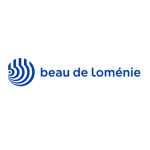A French court issued a ruling on April 13 2018 concerning the photographs of Chambord Castle used by Kronenbourg breweries in the context of an advertising campaign for one of their beers.
The case asked whether the castle, which is part of the public domain of the French state, can be reproduced without financial compensation or authorisation from the public institution.
Previously, commercial exploitation of a photograph of a private building has been allowed, without prior authorisation or any financial compensation, unless the photo caused abnormal disturbance to the owner of the building or if the owner had copyright on that building.
The court confirmed this ruling and rejected the argument that such commercial operation could be considered as private use of the public domain. Deciding differently would restrain the freedom of entrepreneurship.
This decision was, however, made prior to Law No. 2016-925 of July 7 2016 on the freedom of creation, architecture and heritage.
Now a specific system is set up for image rights of goods falling under the category of "national domain". A first list of six monuments and estates was submitted by the Ministry of Culture and Communication and validated by the Historical Monuments National Commission. On this list were the Chambord Estate, the Castle of Angers, the Palais du Rhin in Strasburg, the Estate of Pau, the Louvre and Tuileries Estates in Paris (1st) and the Palais de l'Elysée in Paris (8th).
Article L. 621-42 of the Heritage Code means that prior authorisation and potential financial compensation are now the rule for using an image of such buildings.
However, such authorisation is not required when the image also pursues a cultural, educational, research or information purpose or is linked to a public service task.
A decree should provide details about the concept of "commercial purpose".

|
Aurélia Marie |
Cabinet Beau de Loménie
158, rue de l’Université
F - 75340 Paris Cedex 07 France
Tel: +33 1 44 18 89 00
Fax: +33 1 44 18 04 23











